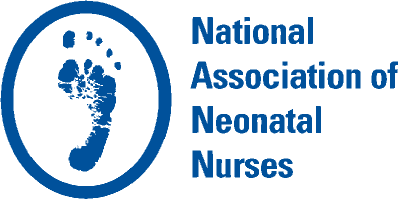Feature
Professional Branding: What Your Brand May or May Not Be Saying About You
Tosha Harris, DNP APRN NNP-BC
Some time ago, a dear friend introduced me to nurse branding. I was intrigued; what is it, and how do I get one? Although I was interested in learning more, life happened, and other professional and personal responsibilities took precedence. However, recent events have given me pause to reevaluate many aspects of my nursing career, and my branding is one of those aspects.
What Is Branding?
From a business perspective, a brand is defined as “an intangible marketing or business concept that helps people identify a company, product, or individual” (Kenton, 2022). Branding is heavily used in the business world, and logos, trademarks, and slogans have long been used to help consumers differentiate companies, products, and services.
The literature remains largely silent on branding as a benefit to the nursing profession. However, nursing symbolism, such as the white uniform, evokes a wide variety of feelings and reactions among consumers of health care and nursing (Dominiak, 2004). Therefore, developing a brand synonymous with nursing may be a daunting and complicated task as consensus among stakeholders is unlikely.
Personal branding, however, may greatly benefit the individual seeking initial employment with an organization and the employee looking to advance their career within an organization.
Organizations also benefit from branding. Organizational branding should highlight the employer’s values, mission, and vision. In doing so, the organization will be more likely to recruit and retain like-minded individuals while steering candidates who do not share their values toward more suitable places of employment. When employees feel their employer shares their values, they are more likely to stay longer with the organization.
Why Is Branding Important?
If you haven’t already, you will probably hear the old theory “a nurse is a nurse is a nurse” at some point in your career. Under normal circumstances, I would disagree adamantly and explain why this way of thinking can have potentially dangerous consequences. BUT in terms of branding, it can hold true. Your professional brand speaks to who you are, what you do, how you do it, and how it separates you from others who possess similar characteristics and qualifications. Failing to develop your professional brand could hinder you from getting the job of your dreams, especially in a competitive market.
Colon (2014) suggests promoting your nursing as a business by reframing your mindset and self-image from the powerless employee to the powerful, in-charge CEO. Through professional branding, you establish your value, consistently deliver that value, and, as a result, establish trust. Doing so gives you leverage to negotiate a salary that accurately compensates you for your expertise and skill instead of forcing you to accept the offered salary or compensation package.
How to Develop Your Professional Brand
How do you go about developing your personal, professional brand? Brands don’t develop overnight, and much consideration should go into their development. Once you establish your brand, it’s long-lasting. Whatever happens after you brand yourself will either reinforce your brand or contradict it (Colon, 2014).
The first step to creating your professional brand involves determining your brand expectations. Take some time to think about your career trajectory and what you want your brand to help you achieve (Colon, 2014).
In Tips from a Nurse Coach: The Importance of Personal Branding (Indeed Editorial Team, 2022), nursing career coach Keith Carlson offers other tips to help nurses develop their professional brands. They include:
- Identify your core values
- Identify your strengths and what makes you different
- Acknowledge that you're more than just a nurse
Many other elements that can be part of your brand:
- areas of interest, research, experience, and experience
- strengths in communication and collaboration
- eagerness to learn
- ability to stay calm and make sound decisions under pressure
- understanding of organizational culture and needs (University of St. Augustine for Health Sciences, 2020)
Your Brand Represents You
When developing your professional brand, it is imperative to remember that your brand represents you. Your brand is influenced by your social media presence, curriculum vitae, references, interactions, and others’ impressions. Your brand should speak to your value.
Should you decide that creating your professional brand is not worth the time or effort, consider that others will brand you if you fail to do so—and their branding could be less than flattering (Colon, 2014).
References
Carlson, K. (2017). Developing your personal nursing brand. HealtheCareers. Retrieved May 9, 2022, from https://www.healthecareers.com/articles/career/developing-your-personal-nursing-brand.
Colon, R. (2014). Promote your nursing career like a business. Nursing, 43(2 Suppl 1), 7–9. https://doi.org/10.1097/01.NURSE.0000426540.97687.ce
Dominiak, M. C. (2004). Concept of branding: Is it relevant to nursing? Nursing Science Quarterly, 17(4), 295–300. https://doi.org/10.1177/0894318404269376
Indeed editorial team. (2022, February 6). Tips from a nurse coach: the importance of personal branding. Indeed. Retrieved May 09, 2022, from https://www.indeed.com/career-advice/finding-a-job/nurse-personal-branding
Kenton, W. (2022, March 24). Brand. Investopedia. Retrieved May 08, 2022, from https://www.investopedia.com/terms/b/brand.asp
University of St. Augustine for Health Sciences. (2022, January 27). Marketing yourself as a nurse: 9 strategies. Retrieved May 09, 2022, from https://www.usa.edu/blog/marketing-yourself-as-a-nurse-9-strategies/


